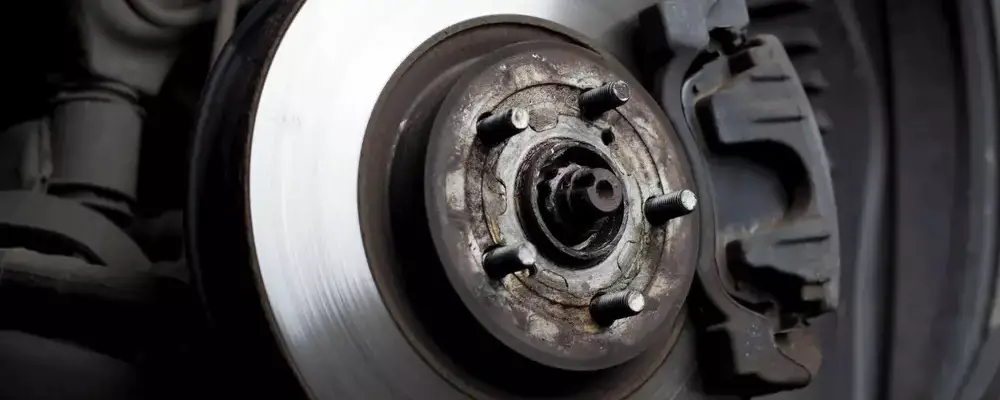When you hear squeaking noise while driving but not brakes applied, you’d probably be worried. Why would your car screech when you are not stepping on the brakes? Are your brakes defective?
Before you flood your mind with horrific scenarios, let us learn more about your braking system. What causes them to squeak? And how to make them stop.
Squeaking Noise While Driving Yet No Brakes Applied?
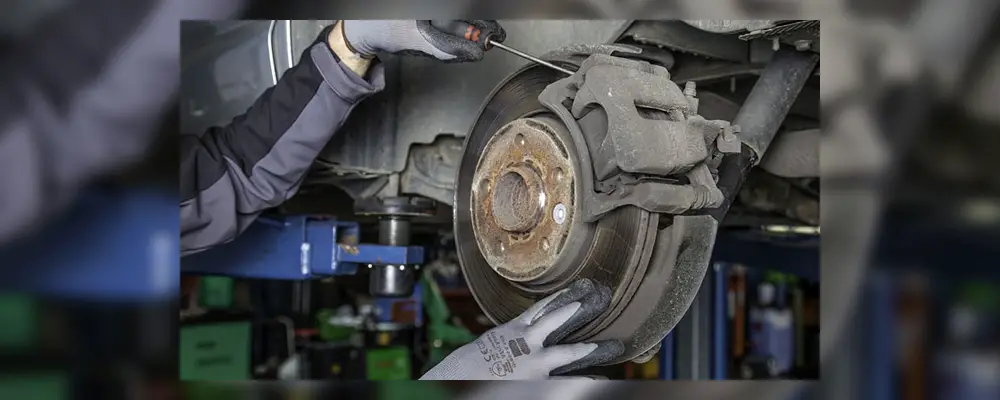
While brake noise is understandable, the squeaking that occurs when nobody steps on the brakes is alarming. Cars these days have cast-iron discs between friction-material-lined brake pads.
They are designed this way so that the pads, disc, and caliper vibrate when the driver applies brakes. But this reaction can change depending on the car’s speed. It squeaks if you step on the brake pads hard.
However, when the brakes squeak out of the ordinary, something may be wrong with the brake system. It can be because of brake pad wear sensors, damaged disc brakes, or something else.
What’s That Squeaking Braking Sound?
A squeaking brake sound normally indicates worn brake pads. It could be because of long-term use, which requires replacing the brake pads. The small steel clip indicators cause brake pad noises.
The squeaking noise begins once the pad is worn down and the brake pad wear indicators are exposed. Low-quality brake pads are prone to brakes squealing. Apart from wearing out, some brake parts make squeaking sounds for different reasons.
Glazed pads, where the rotor surface becomes uneven, also make a squeaking noise. Having it checked by mechanics and technicians can do a great deal of help to your car.
What Causes Squealing or Squeaking?

Hard Lining
The hard lining is not very pleasant to deal with, especially the rear brakes. Back brakes with rear drum brakes produce sound when not aligned well. It could also be a result of the caliper piston’s sticky movements. You have to ensure these are clean and place grease properly to keep them lubricated.
Dust and Debris
Dust and debris are trapped in the braking pad and the rotor or the disc brake. The brake rotor creates a squeaking sound because of the dirt stuck inside the drums. You can fix squeaky brakes by removing the brake dust and other foreign debris collected. However, this can be pretty tricky. You might as well ask a mechanic to clean the brake discs for you.
Damaged Parts
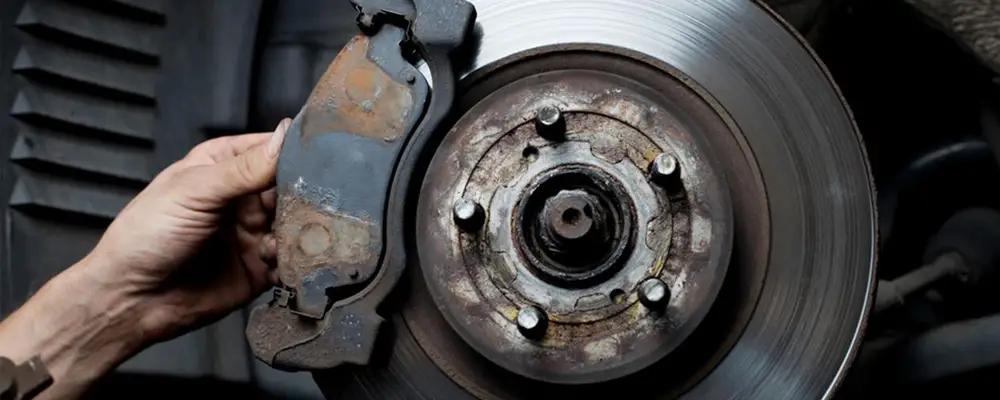
If you have damaged brake parts, it wouldn’t matter if you run at slow, normal, or low speeds. It will continue to produce squeaking noise coming from the brakes. Missing or incorrectly installed parts, such as anti-rattle clips, can cause squealing. These are instances that require a visit to the mechanic to determine if it needs replacement.
Inexpensive Lining Materials
Quality should always be the basis when making any purchase. Products with poor quality lining materials cause brake squealing. . This easily wears down and produces a loud squealing sound. Trust a good brake pad material or one that has high-quality friction material. You can also have a reliable mechanic to ensure that these are installed properly.
Thin Brake Pads
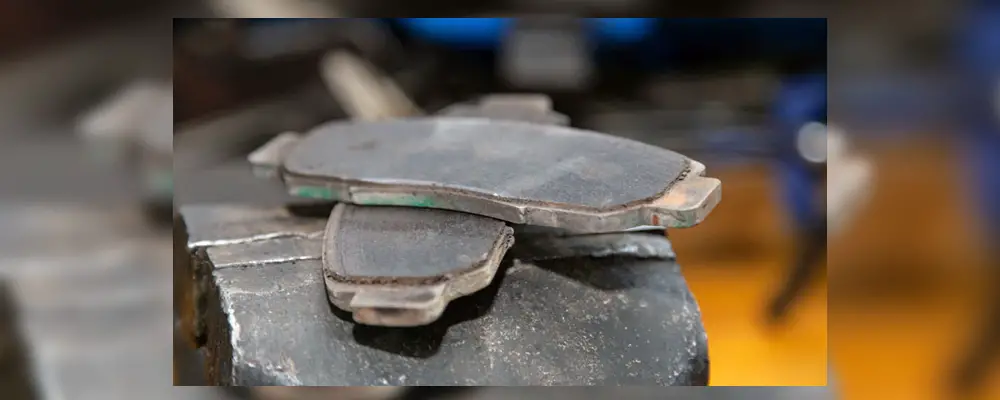
This is a common scenario where the brake wear indicator makes a squealing noise because it needs replacement. Even braking lightly, it still creates a squeaky noise due to its thin pads. These are already worn-out pads, and the squeaking noise is an indication that it is time for new brakes.
New Brake Pads
New brake pads have calipers and brake pads that need lubrication (1) on contact points. This is why it squeals when you are applying brakes. Brake grease stop brakes squeaking. New brakes work great with high-temperature grease. Another reason is that you are using the wrong brake pads. New brakes also create noise if these are poorly fitted brake pads.
Other Odd Noises Brakes Make
Scraping
One of the unusual sounds you hear is a scraping sound. Even if you are at slow speeds or normal speeds, it sounds like you are scraping a tin can on the ground.
This is not noisy brakes making the nasty sound but a rock that got stuck in your backing plate and the rotor. You can get rid of the noise if you remove whatever was lodged on your vehicle.
Thumping or Squealing in the Morning
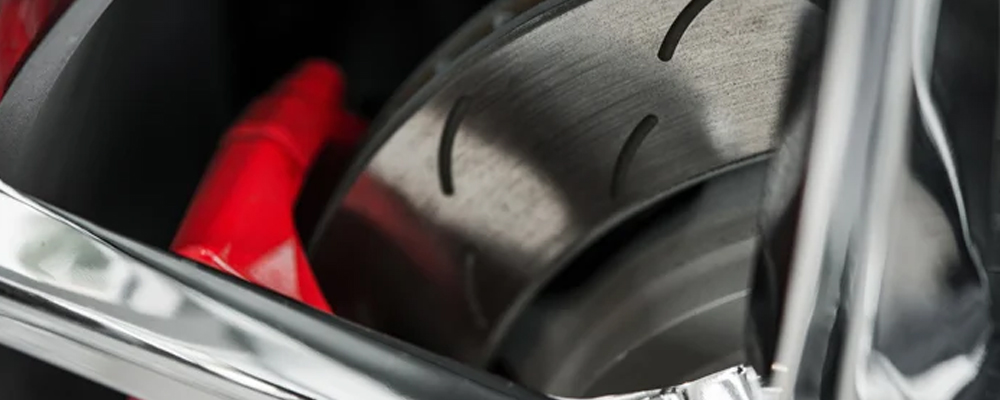
One reason could be the warped surface of the brake rotors. It creates uneven contact together with the pads and brake caliper. There could also be missing brake hardware, the reason why there is a thumping sound.
It may also have collected morning dew overnight requires time to warm up. You can replace it with aftermarket brake pads with better friction material. You can use a ceramic pad to eliminate the grating or whooshing noise it makes.
Grinding
A worn-out brake pad produces grinding noise. The braking system cannot last the excessive build-up of heat because of the worn part. Replacing these will prevent possible problems but avoid cheap brake pads as these do not last long.
Grinding noise can also be because of a sticking caliper that compresses the braking pads when in contact with the disc rotor. You can grease the sliding surfaces to eliminate the noise.
Related Posts:
- Causes for RPM Going Up & Down at Idle
- Causes for Car Overheating When AC is On
- Check Fuel Cap Meaning
How To Stop Brake Squeaking
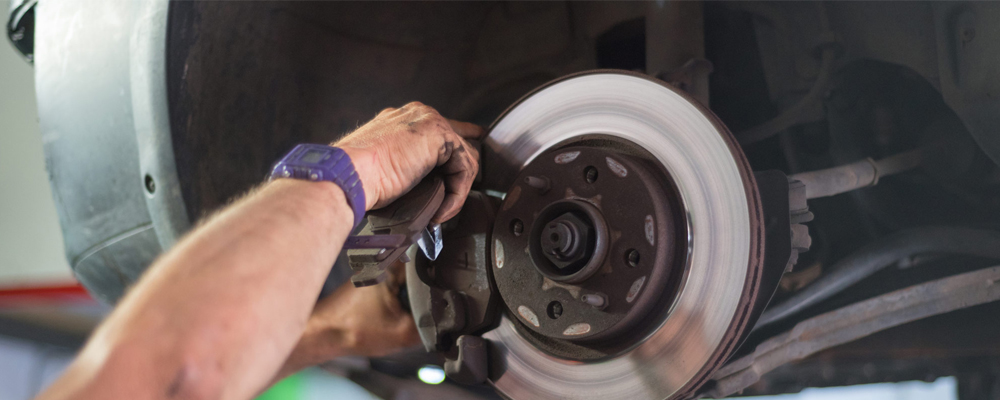
You can stop brake squeaking with working and properly installed brakes. The common reason these brakes are making noise is their worn-out state. The metal clips are installed to serve as an indicator.
Once the right or left pedal touches, it turns to squeaking brakes. Replacing these would be the best solution to the problem. Inappropriately installed and foreign parts also cause this noise.
Stuck foreign objects are expertly removed by mechanics using a wire brush. Sometimes, you can hear its noise at the vehicle’s rear end. A mechanic can amend the situation without prolonging the issue.
FAQs
Why is my car squeaking when I drive but not when I brake?
Your car is squeaking when you drive but not when you brake because the brake pad wear indicators touch the rotor. The possibility is that this is already worn out and needs a replacement. Driving at low speed is advisable to avoid accidents until you can get a mechanic to fix the problem.
Can brakes squeal when not applied?
Yes, brakes can squeal when not applied because of worn-out parts that collides with each other. This is actually an indicator that it needs a replacement. Losing control over your brakes is a possibility.
Why does my car squeak when I drive slowly?
Car squeaks when you drive slowly because of brake pads and discs that are poorly fitted. These can also be worn-out pads that squeak when stepping on the brake pedal. The caliper clamps the pad and applies pressure to it.
Key Takeaways
Squeaking noise while driving can be very disturbing apart from annoying. However, these brakes causing the squeals are doing such because of underlying reasons. Its worn-out state, improper installation, and mismatched application are causing the problem.
It is best to prioritize the importance of a working brake. It is the only thing that can literally stop the car from potential accidents. It is even equipped with a parking brake to keep it during emergencies. Brakes checked by a mechanic will always give you peace of mind. This way, you can avoid having your brake pads squeaking.
Thank you for reading this far! I hope that the information provided in this article will be helpful to you.
Reference:
- https://physicsworld.com/a/car-lubricants-fact-and-friction/

Robert Anderson is a world class motorhead who rebuilt his first carb at age 10, his first engine at age 15, and completed his first full hotrod build when he was just 18! Previously, he has ran a part warehouse, delivered pizzas, and managed the service department for a $20 million/year revenue dealership. Robert knows cars like few others and he is passionate about sharing his knowledge.

